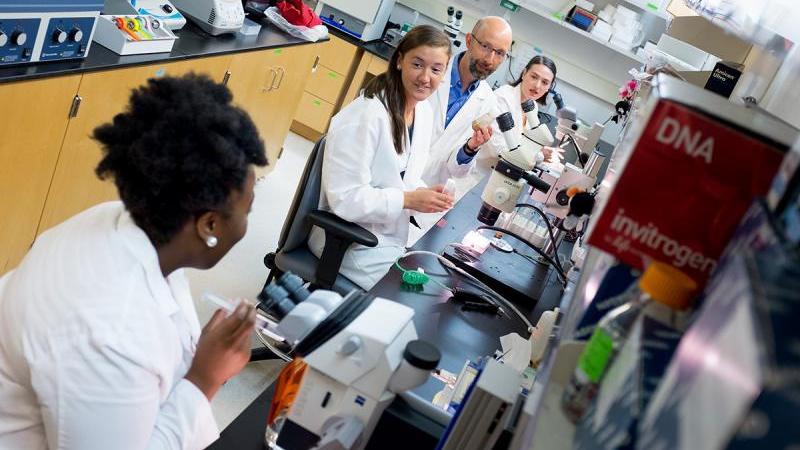Rensselaer researchers are using Drosophilia to unravel mysteries of the human heart
October 2, 2017

The Center for Biotechnology and Interdisciplinary Studies was buzzing with activity over the summer, with more than 200 undergraduate and graduate students conducting research that will impact the global challenges facing humanity. In the lab of Douglas Swank, associate professor of biological sciences, researchers are using Drosophila (commonly known as the fruit fly) as a model organism to unravel some of the biggest mysteries of the human heart.
Swank has received funding from the National Institutes of Health to seek the molecular causes of hypertrophic cardiomyopathy, or enlarged heart disease. Using Drosophila enables Swank and his team to study aspects of the disease that cannot be studied in humans, other model organisms or cell culture.
“Our goal is to try to understand the molecular mechanism behind this disease so that we can help develop better treatments,” Swank said.
Pictured (l-r): Gemel Joseph, doctoral student in biological sciences; Amy Loya, doctoral student in biomedical engineering; Swank; and Kaylyn Bell, doctoral student in biochemistry and biophysics.